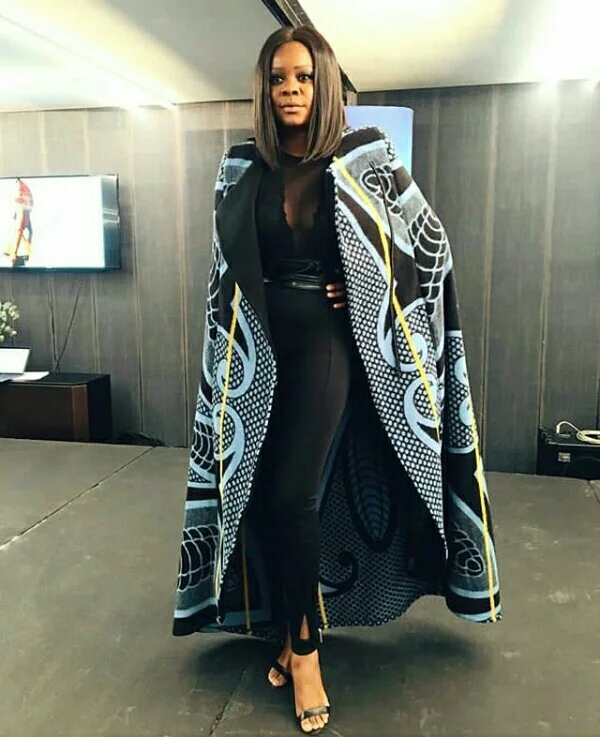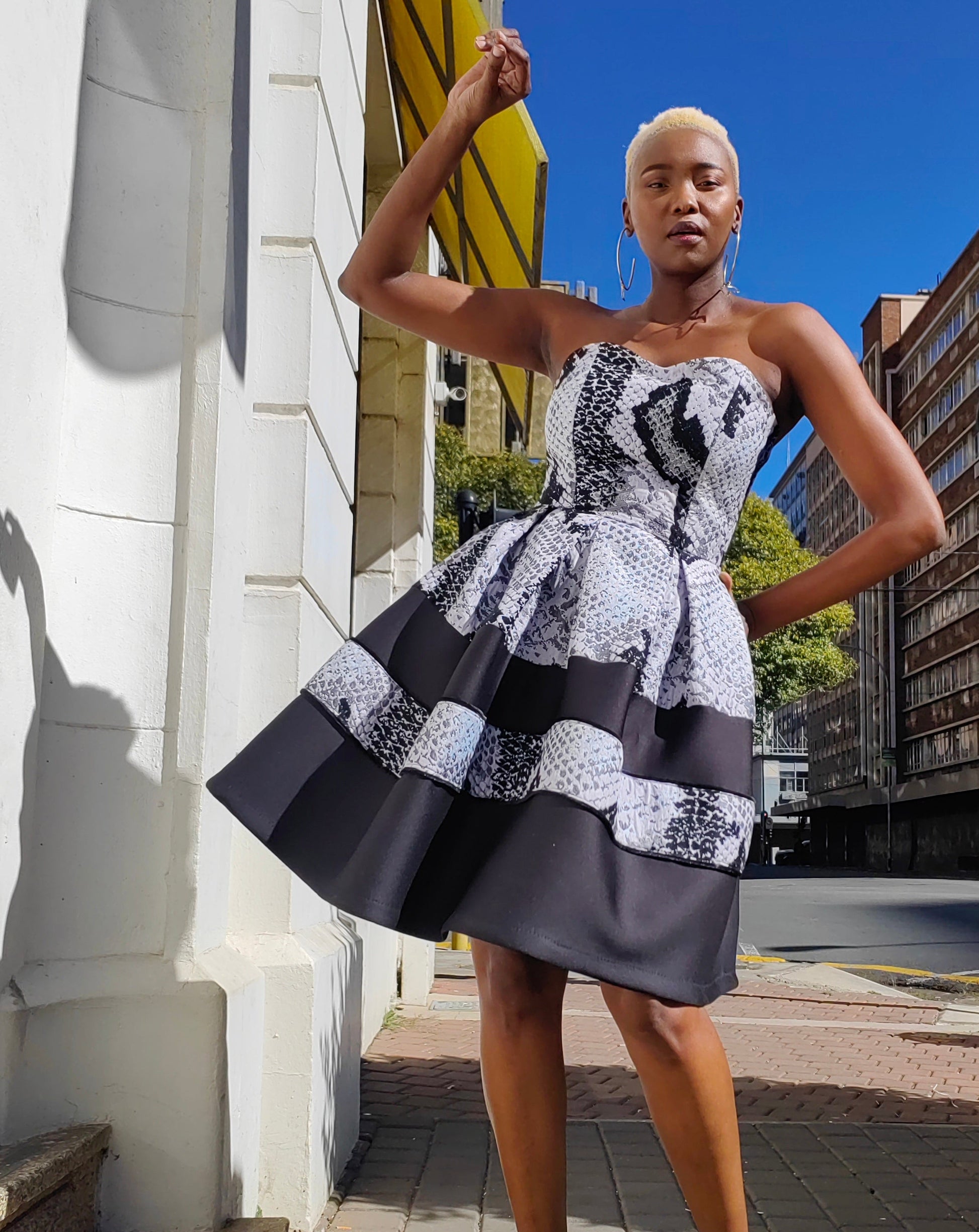 Xhosa Umakoti Photo: @traditionalafricanweddings
Xhosa Umakoti Photo: @traditionalafricanweddings
Traditional dresses in South Africa stand as vibrant symbols of cultural heritage and identity, weaving together centuries of tradition and celebration. These garments, rich in color, pattern, and symbolism, offer a captivating glimpse into the diverse tapestry of South African culture.
From the iconic Zulu attire adorned with vibrant beadwork to the elegant Xhosa umakoti ensemble, each traditional dress type carries with it a unique story, reflecting the customs, rituals, and values of its respective community. These dresses are not merely clothing; they are living expressions of history, passed down through generations as a testament to resilience and pride.
In South African society, traditional dresses play a pivotal role in significant life events and ceremonies, from weddings and coming-of-age rituals to cultural festivals and gatherings. They serve as a powerful means of connection, uniting individuals with their roots and fostering a sense of belonging within their communities.
As we delve deeper into the world of traditional dresses in South Africa, we uncover not just garments, but living artifacts of cultural heritage, each stitch carrying with it the stories of generations past. In embracing these traditions, we honor the richness and diversity of South African culture, ensuring that its legacy continues to thrive for generations to come.
Types Of Traditional Dresses in South Africa
South Africa is a land of rich cultural diversity, reflected vividly in its traditional attire. Here's a glimpse into some of the iconic types of traditional dresses worn by different ethnic groups across the country:
-
Zulu Attire:

Zulu Traditional Attire Photo: @scenecaptures_production- The Zulu traditional dress is characterized by bold, colorful designs and intricate beadwork.
- Women often wear isidwaba (a skirt) paired with an ibheshu (a cowhide apron) for special occasions, while men don distinctive regalia such as the isiNene (a traditional loin cloth) and animal skin accessories.
-
Xhosa Umakoti Ensemble:

Xhosa Umakoti Photo: @traditionalafricanweddings- The Xhosa traditional dress features elegant, flowing garments adorned with striking patterns and colors.
- Women wear the iconic isikhakha (a headdress) paired with an intricately patterned isidwaba and ibhinqa (a cloth worn over the shoulder), while men don the umqhele (a traditional hat) and iqhiya (a knitted cap).
-
Sotho Sesotho Attire:
- Sotho traditional dress is characterized by vibrant blankets, known as Seanamarena, worn by both men and women as a symbol of cultural pride.
- Women often wear colorful seshoeshoe fabric dresses, accessorized with beaded jewelry and headscarves, while men don the traditional Basotho blanket, often adorned with intricate patterns and designs.
-
Ndebele Garb:
- Ndebele traditional dress is renowned for its striking geometric patterns and vibrant colors.
- Women wear colorful beaded necklaces, bracelets, and leg bands, known as ithumbu, along with intricately decorated aprons and headpieces, symbolizing their cultural identity and status.
-
Venda Apparel:
- Venda traditional dress is characterized by its distinctive headgear, known as the Tavha or Tshirivha, adorned with beads and feathers.
- Women wear colorful, patterned skirts and matching tops, accessorized with beaded jewelry and anklets, while men don traditional loin cloths and animal skin capes.
-
Tswana Regalia:
- Tswana traditional dress features elegant, tailored garments, often made from colorful fabric adorned with intricate embroidery and beadwork.
- Women wear knee-length dresses, known as lebole, paired with beaded jewelry and head wraps, while men don tailored suits or traditional attire, such as the Kaross (a traditional blanket) and lebollo (a traditional hat).
Each of these traditional dresses not only serves as a visual expression of cultural identity but also carries with it the stories, customs, and traditions of South Africa's diverse ethnic groups, enriching the country's cultural landscape with their unique beauty and significance.
History and Cultural Significance of Traditional Dresses in South Africa
Traditional dresses within different South African communities hold profound historical and cultural significance, serving as symbols of identity, heritage, and tradition. These garments play pivotal roles in rituals, ceremonies, and social customs, marking significant life events and expressing social status. Through their intricate designs and craftsmanship, traditional dresses embody the artistry and cultural heritage of South African communities, reflecting centuries of tradition, adaptation, and resilience. As repositories of history and identity, traditional dresses are not only garments but also embodiments of cultural pride and heritage, enriching the vibrant tapestry of South African culture.
Overall, the evolution of traditional dresses in South Africa reflects a dynamic interplay between tradition and modernity, as these garments continue to evolve and adapt to changing tastes, lifestyles, and fashion trends.
Where to Find Traditional Dresses in South Africa
Embarking on the journey to find the perfect traditional dress in South Africa is an exploration of cultural richness and timeless elegance. Whether seeking ready-made garments for immediate adornment or bespoke creations tailored to individual tastes, the options are as diverse as the nation's cultural landscape. From the convenience of online stores offering curated collections to the artistry of traditional dress designers crafting custom-made creations, the avenues to embrace tradition are plentiful. Join us as we navigate through the labyrinth of options, from renowned designers to hidden gems, in our quest to discover the essence of tradition through the art of traditional dresses.
Online Stores
Whether you're marking a special occasion or simply embracing your roots, Traditional Dresses Online destinations offer a portal into the captivating world of South African fashion. Delve into their collections, honor tradition, and rejoice in the singular identity that makes South Africa truly extraordinary.
For those seeking to embrace and celebrate South Africa's cultural diversity, you can find a list of online destinations where you can find authentic and exquisite traditional dresses online.
Traditional Dresses Designers
Traditional dress designers play a vital role in preserving and reimagining these cultural treasures, from the vibrant colors and intricate beadwork of the Ndebele to the bold prints and elegant silhouettes of the Xhosa. Browse a list of Top Traditional Dress Designers in South Africa.
Ready Made Traditional Dresses
Ready-made dresses are convenient, readily available for purchase without lengthy consultation or waiting periods. They also offer a wide variety of styles, colors, and sizes, catering to diverse tastes and preferences. Ready-made dresses reflect current fashion trends, ensuring customers stay stylish without the need for customization. Browse a list of places to buy Ready Made Traditional Dresses in South Africa.
Conclusion:
Traditional dresses hold profound importance in South African culture, serving as potent symbols of heritage, identity, and pride. Beyond mere garments, they encapsulate centuries of tradition, craftsmanship, and cultural exchange, embodying the resilience and diversity of the nation's people. Adorned with intricate beadwork, vibrant colors, and symbolic motifs, these dresses not only celebrate the richness of South Africa's cultural tapestry but also serve as conduits for storytelling, connecting generations and communities. Their timeless beauty transcends fashion trends, offering a glimpse into the soul of a nation and inspiring a sense of belonging and unity among its people. In essence, traditional dresses are more than just clothing; they are expressions of cultural identity, reverence for ancestors, and a celebration of the unique heritage that makes South Africa truly extraordinary.




































